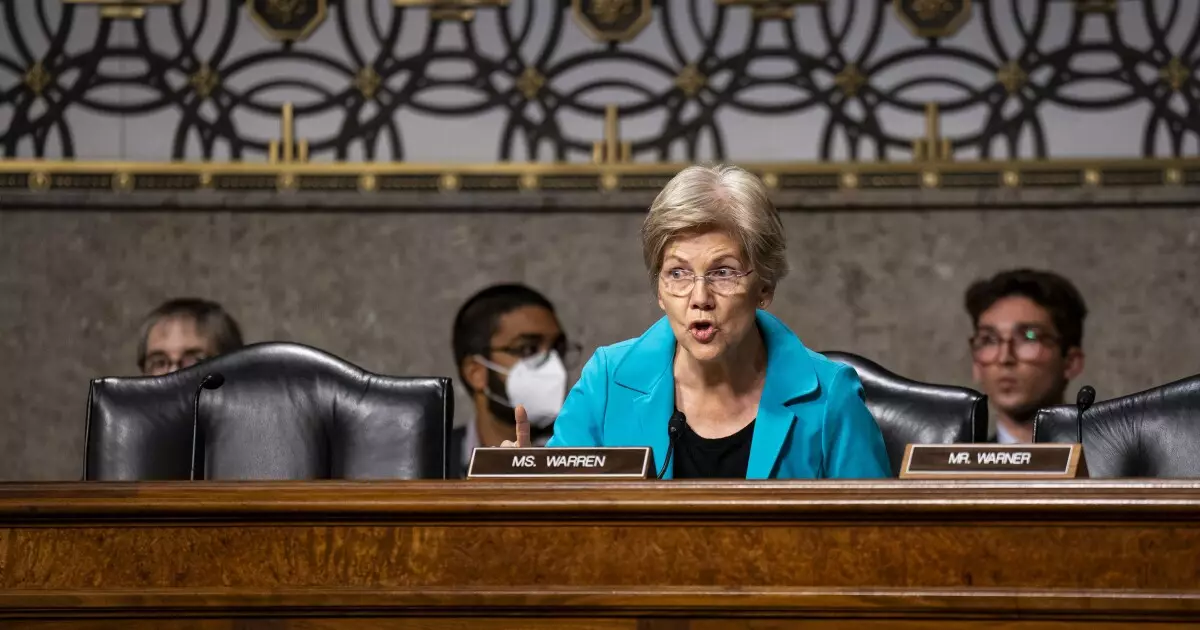As the landscape of American politics shifts with the approaching Republican majority in Congress, the upcoming tax policy debate is heating up. At the forefront of this discussion is recently elected Senate Banking Committee Ranking Member Senator Elizabeth Warren, D-Mass., who has unflinchingly characterized the 2017 Tax Cuts and Jobs Act (TCJA) as a “scam of giant proportions.” Her assertions during a recent subcommittee hearing highlight not only her fierce criticism of the prior administration’s tax policies but also her commitment to advocating for economic equity going forward.
Senator Warren’s criticisms serve as an indictment of the TCJA, which was championed by President Donald Trump during his presidency as a cornerstone of his economic agenda. Warren contends that the initial promise of this legislation—boosting economic growth and improving the financial situation of the American middle class—has ultimately failed. Instead, she warns that any attempt to move forward with a “sequel” to the TCJA would exacerbate existing inequalities, favoring the wealthy at the expense of hard-working Americans.
The financial implications of extending the TCJA provisions have become a focal point for Warren and her Democratic colleagues. With estimates from the Congressional Budget Office and Joint Committee on Taxation suggesting a staggering cost of approximately $4.5 trillion over a decade, Warren argues that the potential for new tax cuts greatly outweighs the benefits. This financial burden raises critical questions about fiscal responsibility, particularly in a country still grappling with the economic ramifications of the COVID-19 pandemic.
In her remarks, Warren emphasized the importance of tax fairness, challenging her Senate colleagues to take a stand for the American populace rather than catering to the interests of the wealthy elite. Her call to action resonates as a reminder that tax policies should aim to bridge economic disparities rather than widen them. The conversation surrounding tax policy is not merely about numbers and budget deficits; it’s about shaping a society where financial burdens do not solely rest on the shoulders of average citizens while the affluent reap undue benefits.
A critical part of this debate involves the municipal bond market, which is apprehensively watching developments as Republicans hint at changes that might alter tax exemptions for municipal bonds. Such changes could disproportionately affect local budgets and services, demonstrating the far-reaching implications of congressional tax decisions.
The impending tax debate is poised to use the reconciliation process, a legislative route that allows for expedited approval with a simple majority vote. As Republicans map out their aggressive agenda for the first 100 days of Congress, Warren’s warnings illustrate the potential losses to social programs and public services that may arise if tax cuts are prioritized over essential funding.
In this context, the concept of “magic math” has emerged, with some GOP members suggesting that tax cuts can be enacted without offsetting lost revenues. Warren’s critique of this, coupled with the idea that tax fairness cannot be achieved through arbitrary accounting methods, raises broader concerns about the credibility of fiscal policy-making in the upcoming administration.
Additionally, the ongoing discourse surrounding the state and local tax (SALT) deduction cap further complicates the narrative. As Senator George Helmy, D-N.J., points out, addressing this cap is essential to ensure that citizens are not unfairly penalized under the tax code. The expiration of the SALT cap amidst looming tax discussions offers an opportunity for reform that could directly benefit those disproportionately affected by previous legislation.
As Democrats prepare for the incoming Republican administration, the stakes couldn’t be higher. There is a genuine need for a transformative approach that advances equity within tax policy. The implications of decisions made in the coming months will reverberate through the economy, impacting countless Americans for years to come.
As the battle lines are drawn in the tax policy arena, Senator Warren’s frank assessments challenge lawmakers to reconsider their allegiance—whether to the affluent or to the vast majority of American citizens. The evolving tax landscape demands accountability and transparency to set a course that promotes fairness over favoritism. This critical juncture offers an opportunity for leaders to choose a path that lifts up everyone and paves the way for a more equitable future. Ultimately, the choices made in this pivotal moment will firm up the priorities of fiscal policy for generations to come.


Leave a Reply